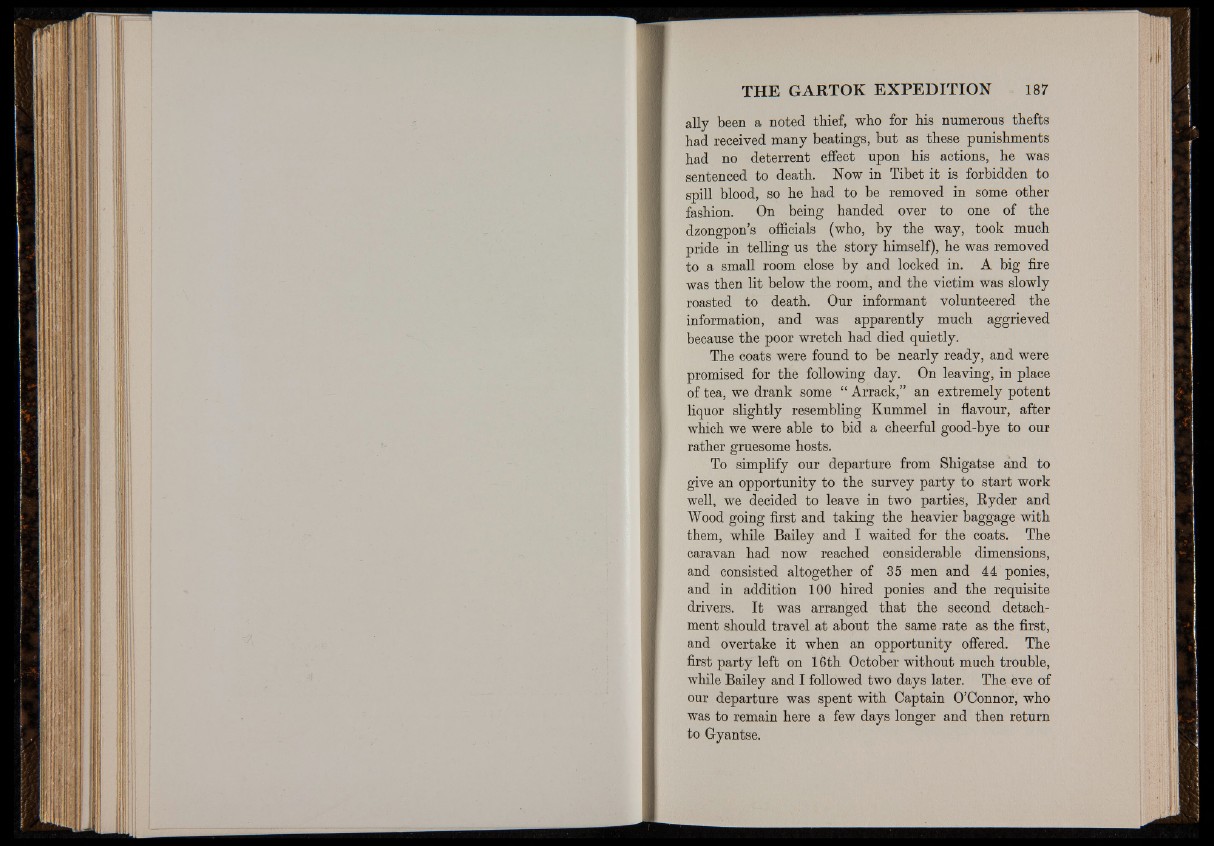
ally been a noted tbief, who for his numerous thefts
had received many beatings, but as these punishments
had no deterrent effect upon his actions, he was
sentenced to death. Now in Tibet it is forbidden to
spill blood, so he had to be removed in some other
fashion. On being handed over to one of the
dzongpon’s officials (who, by the way, took much
pride in telling us the story himself), he was removed
to a small room close by and locked in. A big fire
was then lit below the room, and the victim was slowly
roasted to death. Our informant volunteered the
information, and was apparently much aggrieved
because the poor wretch had died quietly.
The coats were found to be nearly ready, and were
promised for the following day. On leaving, in place
of tea, we drank some “ Arrack,” an extremely potent
liquor slightly resembling Kummel in flavour, after
which we were able to bid a cheerful good-bye to our
rather gruesome hosts.
To simplify our departure from Shigatse and to
give an opportunity to the survey party to start work
well, we decided to leave in two parties, Ryder and
Wood going first and taking the heavier baggage with
them, while Bailey and I waited for the coats. The
caravan had now reached considerable dimensions,
and consisted altogether of 35 men and 44 ponies,
and in addition 100 hired ponies and the requisite
drivers. It was arranged that the second detachment
should travel at about the same rate as the first,
and overtake it when an opportunity offered. The
first party left on 16th October without much trouble,
while Bailey and I followed two days later. The eve of
our departure was spent with Captain O’Connor, who
was to remain here a few days longer and then return
to Gyantse.